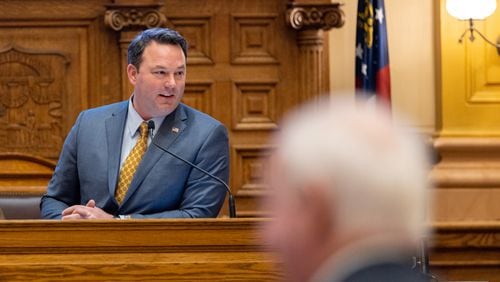Georgia’s Republican Senate leadership is targeting social media this year, aiming to fine companies that allow children to use their platforms as if they were adults and to withhold funding from schools that allow unfettered access.
Senate Bill 351 would allow the state attorney general to pursue $2,500 fines against violators while the Georgia Board of Education would be authorized to withhold funding from local school systems and public schools. Private schools would be subject to regulation, as well.
Current Georgia law addresses online bullying, assigning teenage violators to alternative school. But that code section hasn’t been updated since 2016.
“As two dads, we believe we must keep our kids safe through the ever growing threat of social media on minors,” the bill’s lead sponsor and majority caucus chair, Sen. Jason Anavitarte, R-Dallas, said in a written statement Friday.
The other dad is Lt. Gov. Burt Jones. In August, in a media briefing with Anavitarte, Jones said the internet and its communications platforms were a wonderful yet “very dangerous” tool.
The two said they would be pursuing legislation to rein in social media while observing the First Amendment right to free speech.
They said they would target age verification requirements and addictive features.
Companies would have to follow more stringent guidelines for confirming users’ ages, with 16 set as the cutoff. Younger users would be subject to parent approval and would be shielded from the kinds of advertising and data collection practices that have come to define social media.
Meta has come under fire for the way minors are able to use its Facebook and Instagram platforms, with states suing in federal court. Meta told The Atlanta Journal-Constitution Friday that the company would prefer federal regulation of app stores to a patchwork of state laws.
“We’re grateful for our partnership with Georgia policymakers and look forward to continuing to work closely with them to safeguard teens and empower parents,” said the spokesperson, Rachel Holland.
The legislation also would require local school boards to adopt social media policies by next fall. Schools would be expected to deploy a mix of software and online server technology to restrict access.
There was no money attached to the mandate, but many or most schools already filter their internet services. And Gov. Brian Kemp said Thursday that the $45,000 per school safety grants that he is including in his budget could be used for technology.







